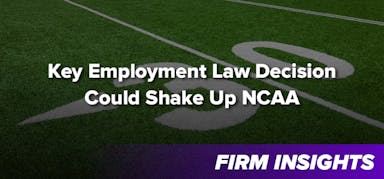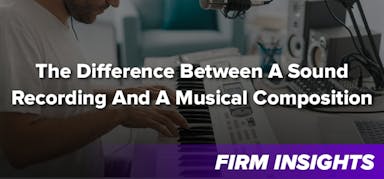
Scarinci Hollenbeck, LLC
The Firm
201-896-4100 info@sh-law.comAuthor: Scarinci Hollenbeck, LLC|November 17, 2015
In a number of professional sports leagues, when a player develops a certain degree of clout within his or her organization, the individual’s contract may include a no-trade clause.
Most of the time, players have little control over when they will be traded or what organization they will be moved to. Luke Ridnour, a veteran point guard in the NBA, spent one week in September as a member of the Orlando Magic, Memphis Grizzlies, Charlotte Hornets, Oklahoma City Thunder and Toronto Raptors. He had no choice in the matter, and eventually decided to sit out the 2015-2016 NBA season. Professional sports leagues are businesses, and like it or not, many players get moved. However, some have a say about where they will end up.
These individuals have contracts that include a no-trade clause. These provisions have, in recent years, led to a number of star athletes being sent to New York teams, among others, and give players an important modicum of power when it comes to deciding what organization they sign with.
When a player has a no-trade clause in his contract he can essentially shut down any trade proposed by his organization. This special portion of any contract can be waived by the player, and sometimes includes a clause that denotes which teams he will be OK with being moved to. If a player with a no-trade clause is to be moved, leagues such as the NFL have procedures designed to move the process forward.
The team that hopes to trade the player must obtain written permission from him and his agent to move him to another organization. This permission comes in the form of the individual waiving the no-trade clause within his contract. A player may waive the clause only when being moved to certain clubs or following a disagreement with the organization prompting him to seek a change of scenery, so to speak. Additionally, if an organization tries to move an individual with a no-trade clause in his contract, he may cite the provision in vetoing the trade.
In the NFL blockbuster, trades are fairly uncommon and a no-trade clause – though still important – will likely not come up often. However, in other sports such as basketball or hockey, these provisions can prove extremely significant and change how teams deal with certain players.
Players concerned about being traded, or being moved to certain regions, will likely have to look into whether they can work no-trade clauses into future contracts. These provisions offer protections that athletes often aren’t afforded, which can be significant, especially in regard to factors such as comfort and family.
If you are interested in negotiating a no-trade clause into your contract, speak to an agent with knowledge of sports law who can help you work the provision into your next agreement with your team.

The Firm
201-896-4100 info@sh-law.com



In a number of professional sports leagues, when a player develops a certain degree of clout within his or her organization, the individual’s contract may include a no-trade clause.
Most of the time, players have little control over when they will be traded or what organization they will be moved to. Luke Ridnour, a veteran point guard in the NBA, spent one week in September as a member of the Orlando Magic, Memphis Grizzlies, Charlotte Hornets, Oklahoma City Thunder and Toronto Raptors. He had no choice in the matter, and eventually decided to sit out the 2015-2016 NBA season. Professional sports leagues are businesses, and like it or not, many players get moved. However, some have a say about where they will end up.
These individuals have contracts that include a no-trade clause. These provisions have, in recent years, led to a number of star athletes being sent to New York teams, among others, and give players an important modicum of power when it comes to deciding what organization they sign with.
When a player has a no-trade clause in his contract he can essentially shut down any trade proposed by his organization. This special portion of any contract can be waived by the player, and sometimes includes a clause that denotes which teams he will be OK with being moved to. If a player with a no-trade clause is to be moved, leagues such as the NFL have procedures designed to move the process forward.
The team that hopes to trade the player must obtain written permission from him and his agent to move him to another organization. This permission comes in the form of the individual waiving the no-trade clause within his contract. A player may waive the clause only when being moved to certain clubs or following a disagreement with the organization prompting him to seek a change of scenery, so to speak. Additionally, if an organization tries to move an individual with a no-trade clause in his contract, he may cite the provision in vetoing the trade.
In the NFL blockbuster, trades are fairly uncommon and a no-trade clause – though still important – will likely not come up often. However, in other sports such as basketball or hockey, these provisions can prove extremely significant and change how teams deal with certain players.
Players concerned about being traded, or being moved to certain regions, will likely have to look into whether they can work no-trade clauses into future contracts. These provisions offer protections that athletes often aren’t afforded, which can be significant, especially in regard to factors such as comfort and family.
If you are interested in negotiating a no-trade clause into your contract, speak to an agent with knowledge of sports law who can help you work the provision into your next agreement with your team.